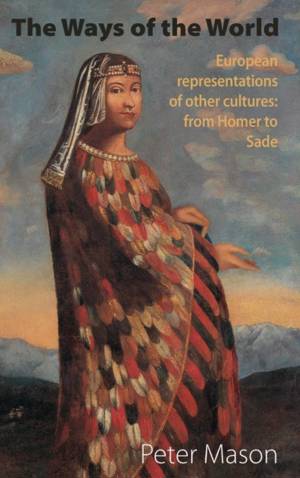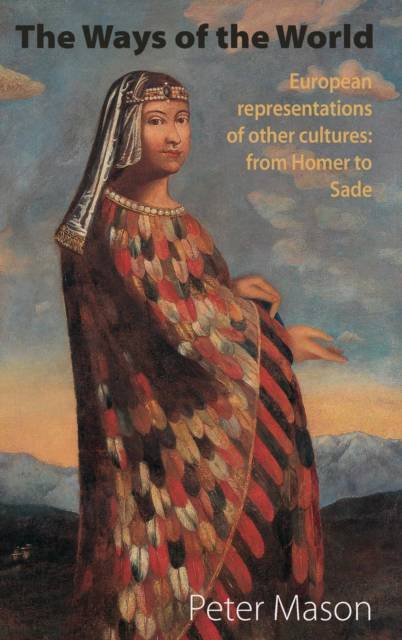
- Afhalen na 1 uur in een winkel met voorraad
- Gratis thuislevering in België vanaf € 30
- Ruim aanbod met 7 miljoen producten
- Afhalen na 1 uur in een winkel met voorraad
- Gratis thuislevering in België vanaf € 30
- Ruim aanbod met 7 miljoen producten
Zoeken
The Ways of the World
European representations of other cultures: from Homer to Sade
Peter Mason
Hardcover | Engels
€ 128,95
+ 257 punten
Omschrijving
Before the emergence of anthropology around the middle of the nineteenth century, there was no ethnography as such. But the discipline owes its formation to certain strands that go back into the remoter past of the ancient world, as far back as Homeric epic, and range over such themes as the Greek views of non-Greeks and indeed of the boundaries of what it is to be human. These classical structural polarities have provided an enduring interpretative framework for configuring the 'other' in very different societies and places. Reaching across a remarkable time span, Mason's approach does not attempt a unified narrative, but uses case studies from the ancient world, the early modern era and the Enlightenment, many of them related to the difficulties of comprehending the cultures of the New World, to pinpoint startling continuities and changes. In this way, Mason reveals 'embedded ethnographies' in the works of a diverse set of writers, from giants of their age such as Sextus Empiricus, Columbus, Montaigne, the Marquis de Sade and Goethe, to little-known authors of the sixteenth century such as Jan Huygen van Linschoten (tales of sex and drugs in Goa) and Adriaen Coenen (encountering Eskimos in The Hague). Drawing his conclusions from a wealth of sources, the author deftly moves from travellers' accounts, encyclopaedias, cosmographies and natural history compilations, to literary works of fiction, translating them from seven languages. Many are presented here to English readers for the first time. Whether non-European peoples are demonized or idealized, the author asks, can any trace of a native voice still be found in these European texts? An outstanding work by a scholar with an eye for extraordinary case studies and unexpected cultural connections, which contribute to opening up new paths of research and reinvigorate the field. Francisco Bethencourt - Charles Boxer Professor of History, King's College London The Ways of the World is an elegant, lucid, exemplary piece of intellectual history by an author who is as much at home in philosophy and literary criticism as he is in anthropology and history. Peter Burke - Emeritus Professor of Cultural History, Emmanuel College, University of Cambridge
Specificaties
Betrokkenen
- Auteur(s):
- Uitgeverij:
Inhoud
- Aantal bladzijden:
- 234
- Taal:
- Engels
Eigenschappen
- Productcode (EAN):
- 9781907774362
- Verschijningsdatum:
- 15/05/2015
- Uitvoering:
- Hardcover
- Formaat:
- Genaaid
- Afmetingen:
- 156 mm x 234 mm
- Gewicht:
- 503 g

Alleen bij Standaard Boekhandel
+ 257 punten op je klantenkaart van Standaard Boekhandel
Beoordelingen
We publiceren alleen reviews die voldoen aan de voorwaarden voor reviews. Bekijk onze voorwaarden voor reviews.











